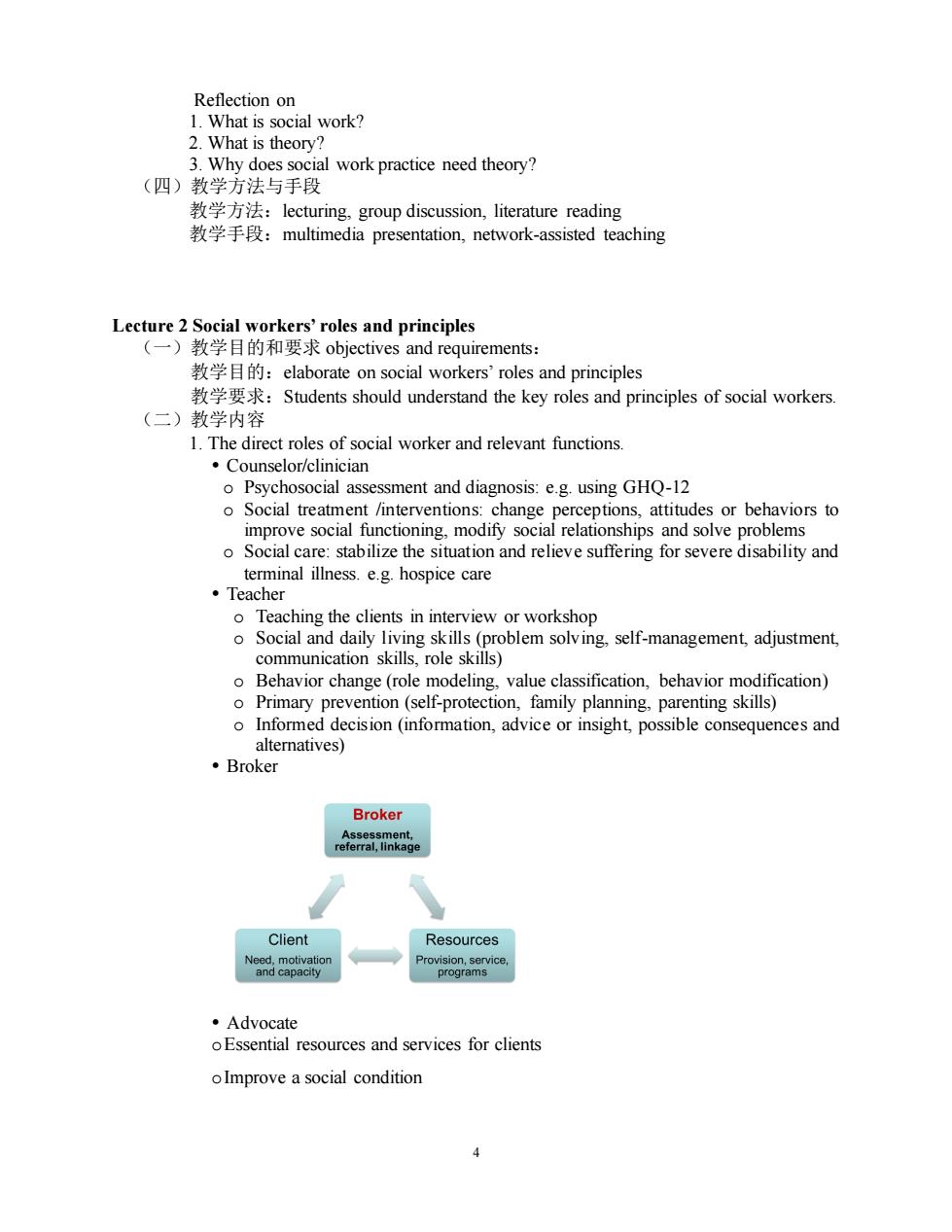正在加载图片...

Reflection on 1.What iss 2 What cial work? theory Why d work practice need theory? (四)教学方法与手段 教学方法:lecturing,group discussion,literature reading 教学手段:multimedia presentation,network-assisted teaching Lecture 2 Social workers'roles and principles (一)教学目的和要求objectives and requirements: 教学目的:elaborate on social workersroles and principles 教学要求:Students should understand the key roles and principles of social workers. (二)教学内容 1.The direct roles of social worker and relevant functions. Cou ment and diagnosis:e.g.using GHQ-12 Social treatr di or behaviors to prot re:stabilize the situation and relieve suffering for severe disability and terminal illness.e.g.hospice care .Teacher o Teaching the clients in interview or workshop o Social and daily living skills(problem solving,self-management,adjustment, communication skills.role skills) o Behavior change(role modeling,value classification,behavior modification) o Primary prevention(self-protection,family planning,parenting skills) o Informed decision (information.advice or insight.possible consequences and alternatives) ·Broker Broker Client Resources ·Advocate oEssential resources and services for clients oImprove a social condition 4 Reflection on 1. What is social work? 2. What is theory? 3. Why does social work practice need theory? (四)教学方法与手段 教学方法:lecturing, group discussion, literature reading 教学手段:multimedia presentation, network-assisted teaching Lecture 2 Social workers’ roles and principles (一)教学目的和要求 objectives and requirements: 教学目的:elaborate on social workers’ roles and principles 教学要求:Students should understand the key roles and principles of social workers. (二)教学内容 1. The direct roles of social worker and relevant functions. Counselor/clinician o Psychosocial assessment and diagnosis: e.g. using GHQ-12 o Social treatment /interventions: change perceptions, attitudes or behaviors to improve social functioning, modify social relationships and solve problems o Social care: stabilize the situation and relieve suffering for severe disability and terminal illness. e.g. hospice care Teacher o Teaching the clients in interview or workshop o Social and daily living skills (problem solving, self-management, adjustment, communication skills, role skills) o Behavior change (role modeling, value classification, behavior modification) o Primary prevention (self-protection, family planning, parenting skills) o Informed decision (information, advice or insight, possible consequences and alternatives) Broker Advocate oEssential resources and services for clients oImprove a social condition